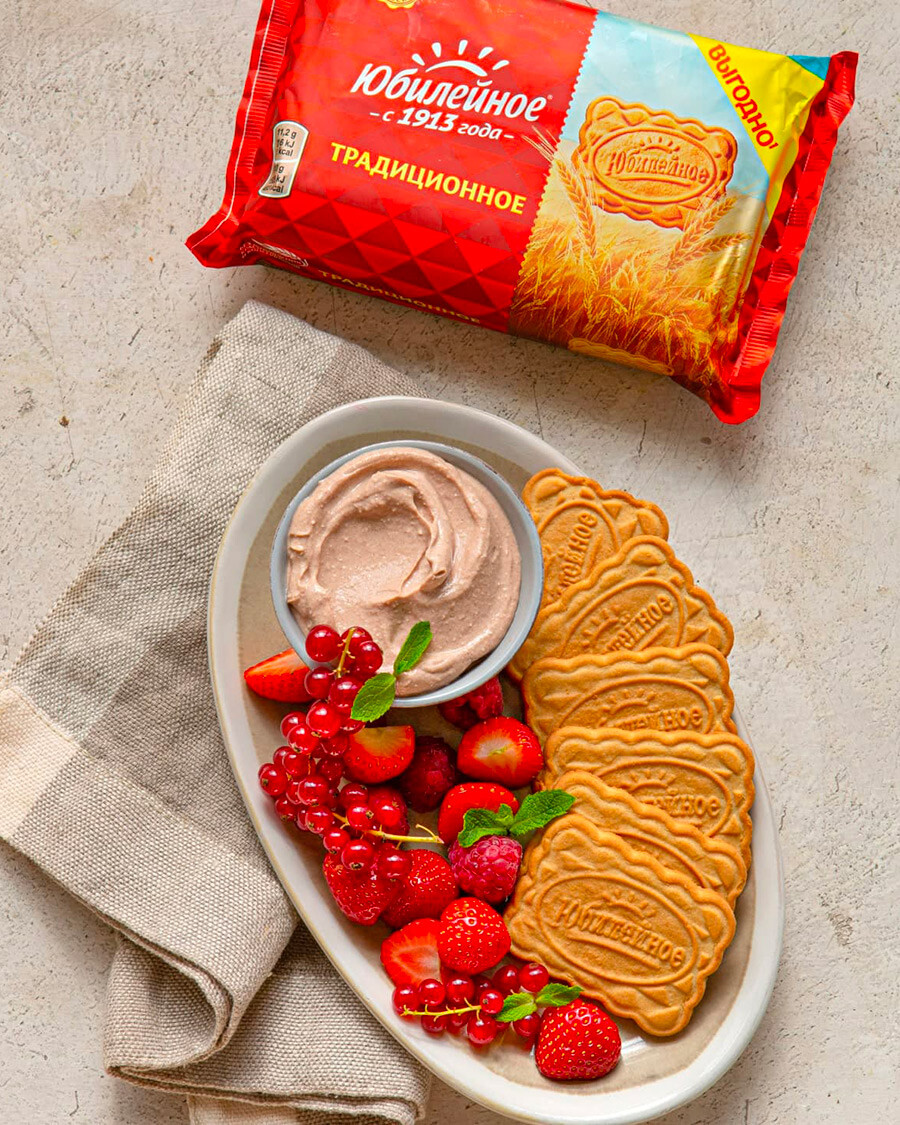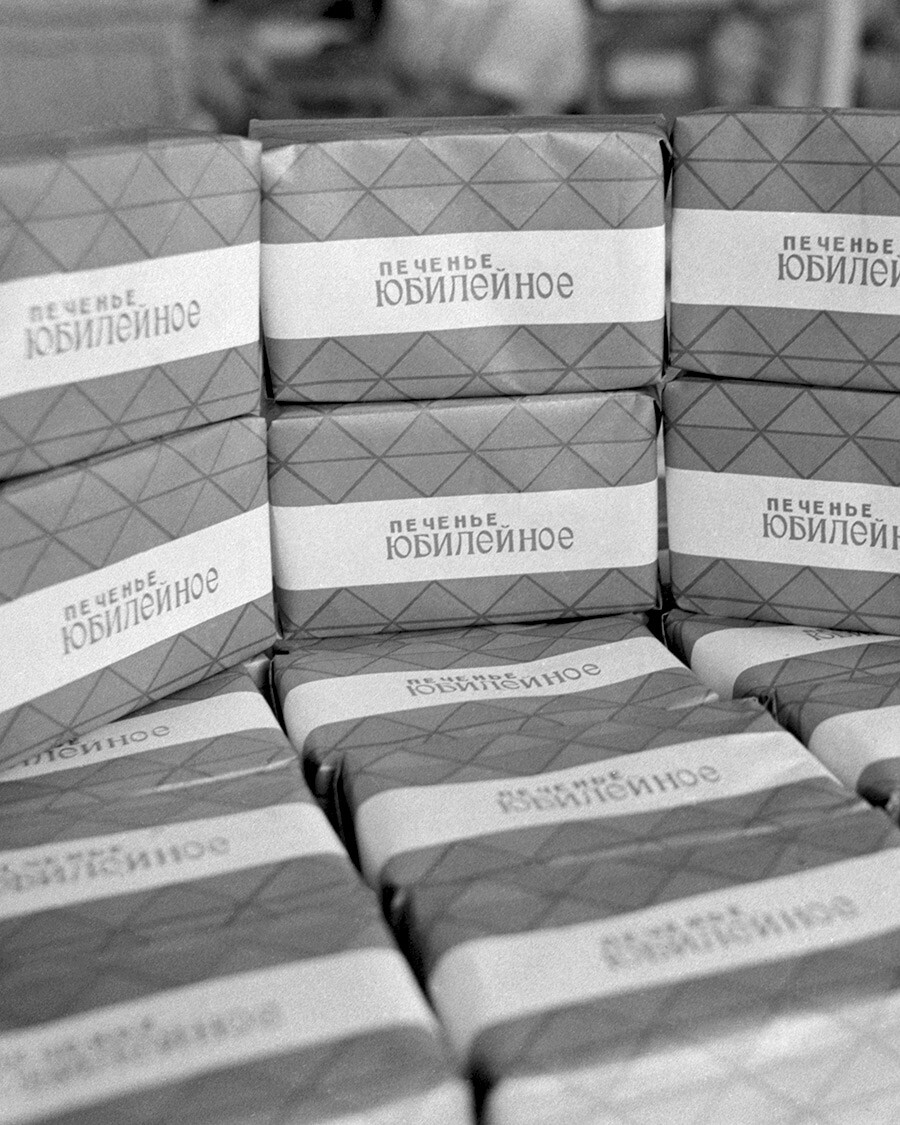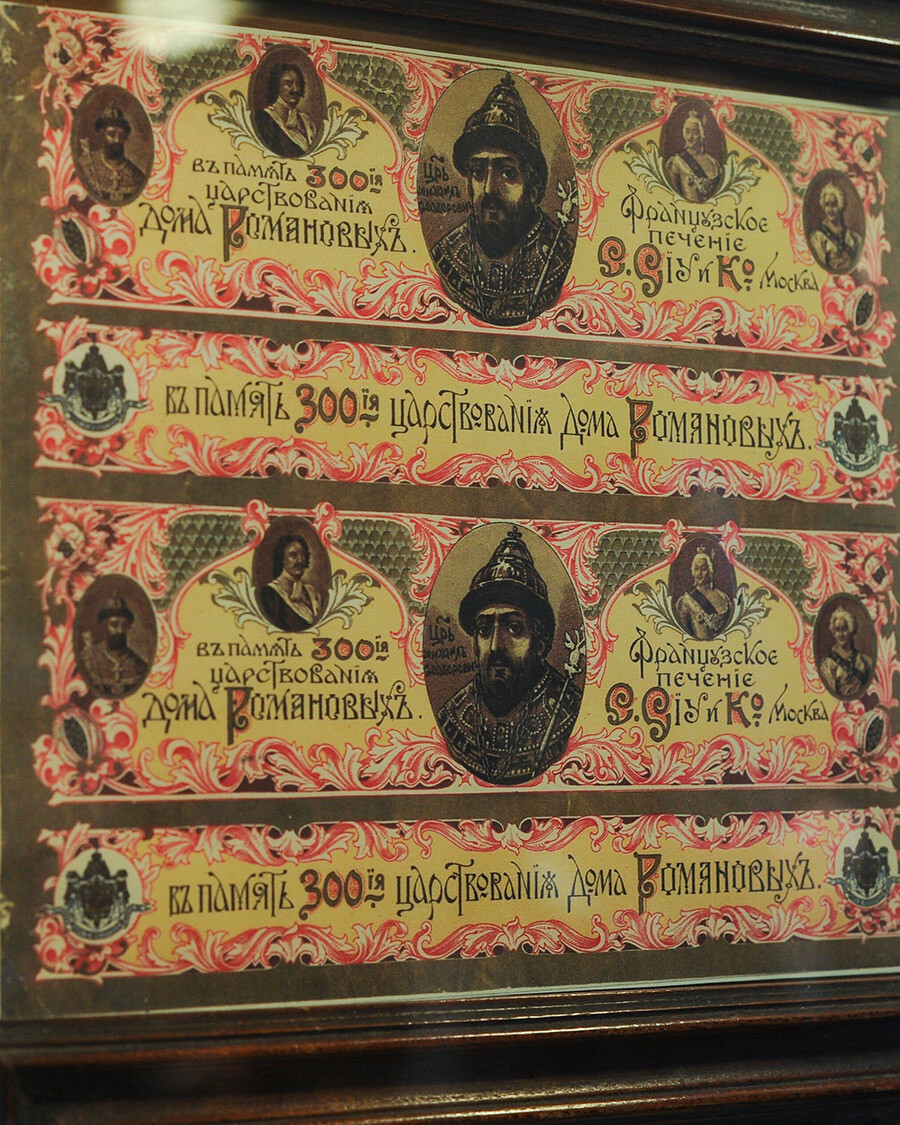
Everyone in Russia knows and loves ‘Yubileynoye’ (literally ‘Jubilee’) cookies. Rectangular, crispy and moderately sweet. They can be eaten in different ways: as is or with a slice of butter or cheese on top. You can give it to children, you can take it to work. And it’s a perfect match for tea. All in all, a real people’s snack!

One of the recent designs
юбилейное.рфThese sugar cookies were the favorite “candy” of our grandparents and, perhaps even great-grandparents. And the recognizable red package could be found in the cupboard of, probably, every Soviet house. It is still produced today at the ‘Bolshevik’ factory, in accordance with all quality marks.
But, why is it called ‘Yubileynoye’? Spoiler: the jubilee of the 1917 Bolshevik Revolution has nothing to do with it!

Yubileynoye in the 1980s
Viktor Budan/TASSThe cookies are older than you might think. The original recipe was developed and presented to the tsar’s family by confectioners from the ‘S. Sioux and Co.’ factory in Moscow, owned by Frenchmen of the Sioux surname and suppliers to the imperial court. This company was considered to be among the most famous confectionery factories in Russia. In Soviet times, however, it was nationalized and renamed ‘Bolshevik’.
The first cookies had an oval form and the box featured portraits of the monarchs, as the cookies were first released in 1913 for the 300th anniversary of the House of Romanov. In Soviet times, the Bolsheviks decided that the original and successful recipe should not be lost and resumed production.

The historical pack
Andrei Lyubimov/Moskva AgencyThe 1917 Revolution, however, was not ignored: In 1967, in honor of cookie’s 50th anniversary, a limited edition of ‘Yubileynoye’ in red and white rhombus wrapper was released, a reference to avant-garde art.
Dear readers,
Our website and social media accounts are under threat of being restricted or banned, due to the current circumstances. So, to keep up with our latest content, simply do the following:
If using any of Russia Beyond's content, partly or in full, always provide an active hyperlink to the original material.
Subscribe
to our newsletter!
Get the week's best stories straight to your inbox